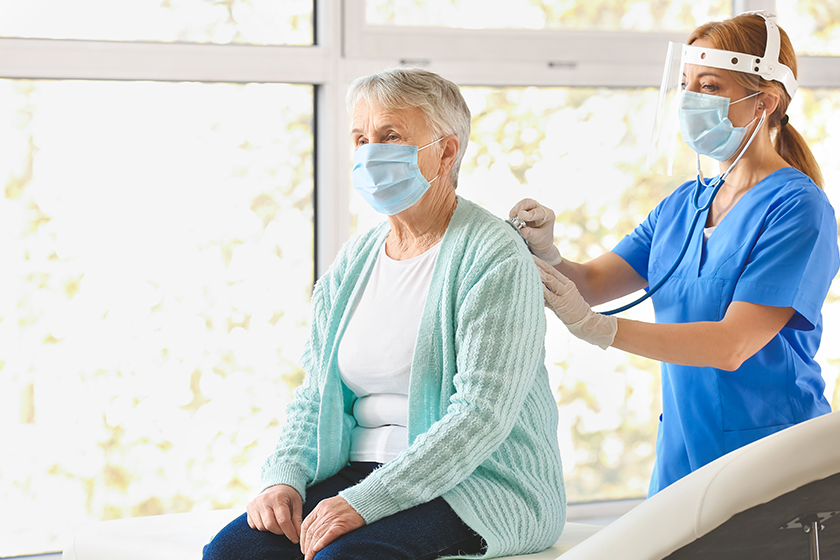Pneumonia poses a serious health risk for older adults, particularly for those over 80. With age, immune defenses weaken, making recovery from infections like pneumonia more challenging. This may mean longer hospital stays and a higher chance of complications. Understanding pneumonia recovery for seniors in assisted living can help families prepare for the journey ahead and make informed care decisions.
Typical Hospital Stay for Pneumonia in Older Adults
Hospitalization for pneumonia in elderly loved ones typically lasts between three to five weeks, depending on the severity of the illness, overall health, and well they respond to treatment. Pneumonia in older adults often progresses quickly, and symptoms may be subtle or hard to detect, meaning many older adults are already quite ill by the time they reach the hospital.
Elderly individuals with pneumonia often require close medical monitoring due to complications such as respiratory failure or weakened organ functions, which can prolong their hospital stay. During this time, doctors may administer antibiotics, antivirals, oxygen therapy and other treatments to address the infection. If symptoms are severe, the individual may need intensive care and possibly a ventilator to assist with breathing.
After discharge, older adults can benefit from a recovery-focused environment such as an assisted living community. Here, they can expect tailored care, gentle support, and help with daily activities as they regain strength.
Key Factors Influencing Pneumonia Recovery in Assisted Living
Pneumonia recovery for older adults can vary greatly depending on the type of pneumonia and the person’s overall health. Bacterial pneumonia, caused by bacteria inhaled from droplets, usually requires antibiotics and often has a quicker recovery. Viral pneumonia, which does not respond to antibiotics, can require extended care, as treatment focuses on managing symptoms. Other forms, such as aspiration pneumonia or hospital-acquired pneumonia, usually require specialized attention due to their unique challenges.
The presence of chronic conditions such as heart disease, diabetes or lung issues can prolong recovery times, as these conditions place added stress on the body. Pre-existing conditions can complicate treatment and sometimes lead to a need for prolonged care and when two lungs are infected, recovery can take even longer.
For older adults transitioning to assisted living after hospitalization, a supportive environment can help manage these challenges. Assisted living communities provide personalized care plans, ensuring residents have access to the right support during recovery, including help with daily activities, nutritious meals, and access to medical professionals as needed.
Symptoms and the Role of Assisted Living
In older adults, pneumonia symptoms can be subtle and easily mistaken for general fatigue or minor respiratory issues. Symptoms such as chest pain, fatigue, confusion, low energy, fever and chills often signal pneumonia but may not be as apparent in elderly individuals. Signs like blue fingernails or lips, coughing and shortness of breath often prompt urgent care.
For the older population, particularly those in assisted living, regular health monitoring plays a critical role in identifying these symptoms early. Assisted living communities provide attentive care, ensuring changes in behavior or physical condition are quickly noticed and addressed. Early intervention not only helps limit the severity of pneumonia but also reduces the likelihood of extended hospital stays and complications.
Supporting Recovery and Peace of Mind in Assisted Living
Assisted living communities provide a nurturing environment for elderly individuals recovering from pneumonia, with personalized care, health monitoring, and supportive services. By offering peace of mind to families and fostering a safe recovery space, these communities ensure your older loved ones regain strength and enjoy a higher quality of life post-illness.







